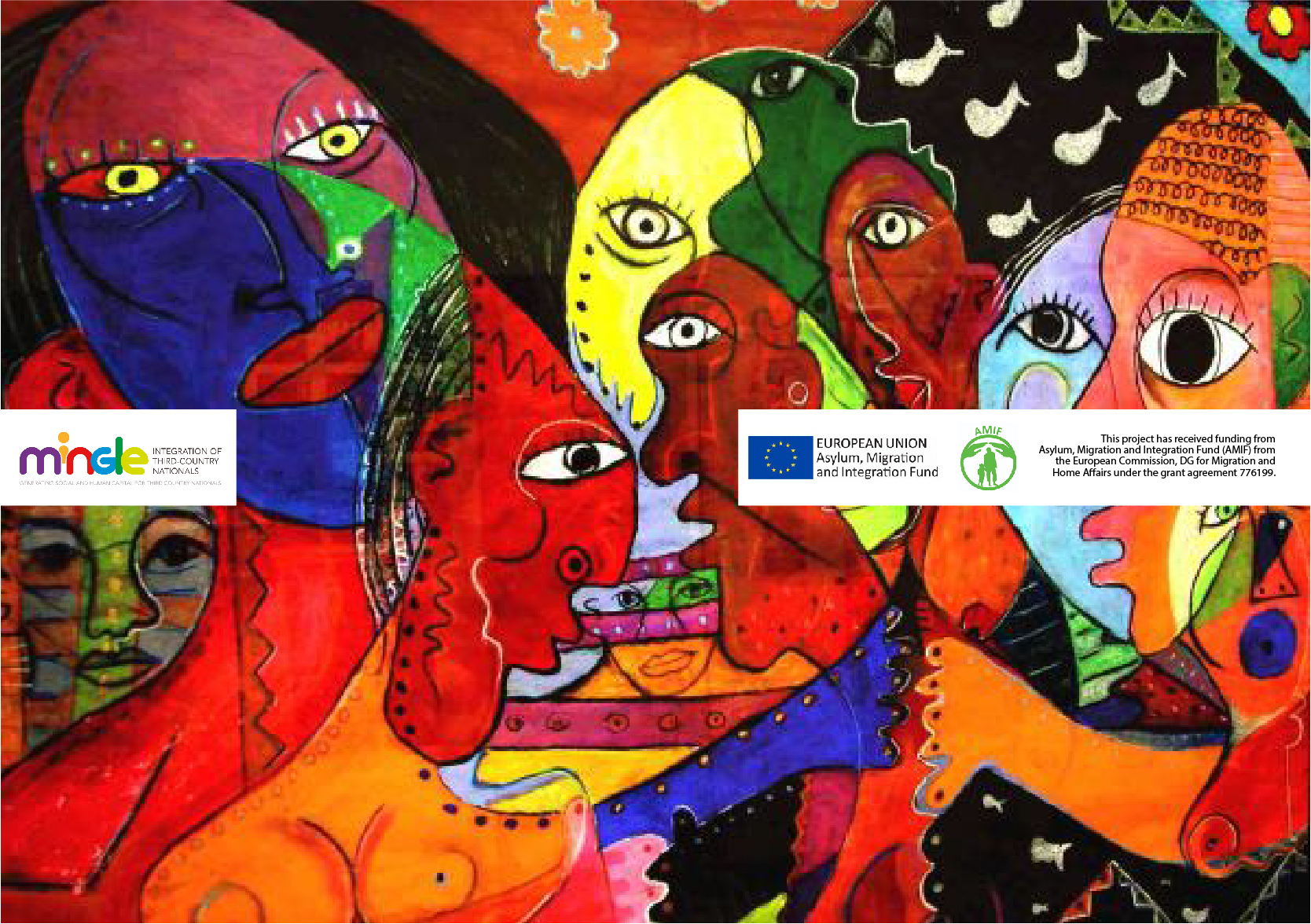Greek Language Courses for Third Country Nationals
Third-Country Nationals
These courses were organized by MMC and the duration was 3 consecutive years. The number of trainees was more than 1000 Third-Country Nationals and the classes were organized across country.
Our aim was to reach out to the target group, by coming in touch and motivate them to participate in a programme which was challenging. Usually due to work and sometimes survival issues, training programs appear to be a ‘’luxury’’. These people were hard to reach via the normal media (radio, local newspapers etc.) so we used various alternative methods which proved successful. TCNs are well organized in their own communities. We targeted the places were TCNs enjoy their weekends (in public parts, churches, “houses” were they meet and cook together. We organized information points in these areas and promoted the program through leaflets and information. TCNs also have their “leaders” (a priest in their church, a TCN with years of residency ). We came in contact with their leaders in order to motivate them to participate. Organization of info days in places where they spend time during the weekends helped to promote the language courses.
Choosing the right trainers was another key factor of the successful implementation of these courses. We followed a strict procedure to assess and select the right trainers who had some specific qualifications and characteristics. They were experienced language teachers with previous knowledge/working experience with the target group, open minded and easily accessible to the target group and they had liaise with the target group from previous projects and kept in touch through facebook and other social media.
The next step was the assessment of the participants’ level of knowledge, with the use of an assessment tool which was developed. Based on the results of the assessment the trainers allocated the participants to the appropriate level. People who chose the 1st level (A1) were not evaluated since they didn’t have any knowledge in Greek language. People who have been evaluated above 50% and below 70% were included in level A2. People who have been evaluated above 70% and below 90% were included in level B1. People who have been evaluated above 90% were included in level B2.
The first part of the assessment tool was listening comprehension (20 points). Participants listened to a brief text in Greek language and then they selected for each of the 4 statements whether were TRUE or FALSE. Then, participants listened to a small dialogue of a married couple in a restaurant, discussing what they prefer to order and they asked to tick the correct pictures of food they decided to order. The third exercise asked them to listen and complete the missing letters from the given words.
The second part of the tool focused on speaking skills (20 points). Each learner presented himself/herself according to the cards given to him/her by the examiner. Then, the examiner gave to each learner 2 roles (scenarios) to play, he/she choose 1 and he/she started a dialogue with the examiner.
The third part of the assessment tool was reading comprehension (20 points). Learners were asked to read carefully a brief text-dialogue and then answer the questions. TRUE/FALSE, multiple choice, open-ended short form questions were included in this part. After that, learners were asked to read carefully another text and note to the table a cross (+) next to the statements that were in accordance with the content of the text (4 crosses).
The fourth part of the tool examined the grammar and vocabulary (20 points). Specifically participants were asked to complete the missing words from a dialogue, to write the correct word under the pictures, to complete the correct type of verbs in a given text and to fill in a dialogue with the appropriate words.
The last part of the assessment tool focused on the writing skills (20 points). Learners were given the following scenario ‘’You are looking for work and your employer asks you to present yourselves’’ and were asked to write a text in which they give information about themselves and their family.
Another key success factor of the implementation of this action was the use of innovative methodologies. During the implementation of the trainings, these methodologies were:
- learn by doing (singing greek songs),
- the DIGEM Methodology: Creation of Storyboards and then videos with a PC,
- SLTOOL: Based on CLIL Methodology for language learning and Experiential Training.
Another aspect of this action was to give the opportunity to TCNs to get to know Cyprus culture and cuisine through the organization of introductory sessions. At the end of the courses intercultural events were organized where cooking of traditional food was demonstrated, Greek songs and music was at the core of the event and slideshows promoting cultural sites and traditions were projected on the walls of the room.
TCNs have acquired language knowledge and communication skills at a very satisfactory level through the language courses, and at the same time they cultivated their intercultural skills and cultural knowledge (traditional cuisine, music, sites, monuments, traditions). Participants were very enthusiastic about participating in this programme and they identified the several benefits they have gained.
| ☒ Education ☒ Cultural awareness |
☒ Language Training
☒ Language Assessment
☒ Intercultural communication
MMC, Nicosia, Cyprus
Name: Christiana Knais
Organisation: Mediterranean Management Centre Ltd (MMC)
Telephone: 22466633
- Assessment-tool-GREEK-LANGUAGE-COURSES-FOR-TCNS
